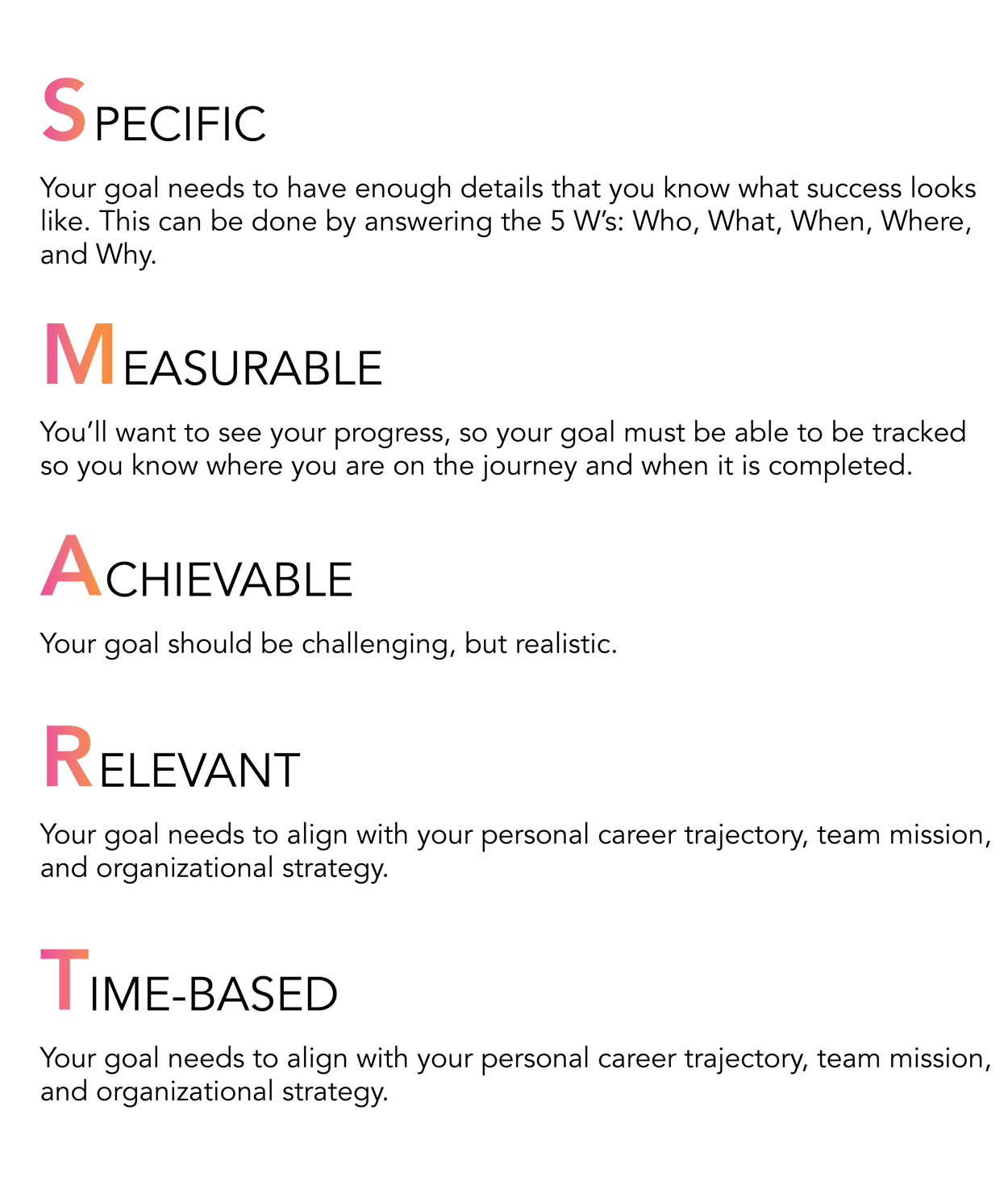4 min read
Should You Give Employees Stretch Goals? Here’s What the Research Says
Jack Welch once said, “Set stretch goals. Don’t settle for mediocrity. The key to stretch goals is to reach for more than you think is possible....
.png)
Professional goals should give you something to work towards and look forward to. They provide a sense of purpose, ownership, and pride when they're realistic. However, many professionals fall into the trap of setting goals at work that are not achievable.
Often, this happens when we feel the pressure to impress our boss, stand out from the crowd, or even redeem ourselves after a serious mistake or period of poor performance. It can even happen if we do not know the benchmark or average. However, this should be avoided at all cost, as it is critically important for goals to be realistic. Here's why.
It is important to set realistic goals and milestones as it increases motivation as each small win or realistic goal attained provides encouragement, confidence, and momentum to propel towards a loftier, larger, long-term goal.
To set yourself up for success, follow the tips below on how to set realistic goals. If you do, you’ll be one step closer to setting goals that are engaging and motivating rather than disheartening and frustrating.

To set realistic goals for yourself, you need to know what type of goals you are setting. Typically, the three main types of goals professionals set are:
Once you know this, it will help you conduct the rest of the goal-setting process realistically and manage the expectations others may have of you, as well as the expectations you might have of yourself.
Do you have goals you’re mentally aware of that are not written down but that you’re keen to achieve? If so, researchers have made a good case for putting these goals into writing. According to one study, those who vividly describe their goals in written form were found to be 1.4 times more likely to achieve said goals.
Though before you jump straight into writing down your goals, think about the SMART goals technique, which stands for specific, measurable, achievable, relevant, and time-based. The benefit of using this technique is that it encourages you to think about your goals from all angles and write goal statements that are thorough, detailed, and realistic.

If you want to know if the goals you have set for yourself are realistic or not, run them by someone you trust, who has been in your shoes before, or who will play some role in making them a reality. For most people, this will be your direct leader, mentor, or even a trusted and experienced colleague. When you ask them for a second opinion, you may be surprised by the insight or perspective they can bring that you may not have otherwise considered.
When setting up an action plan for your professional goals, consider the skills, training, people, resources, and funding you need to make it happen. Also, take some time to contemplate any potential problems, challenges, or obstacles that you might encounter along the way. Creating an action plan is a final check and balance to ensure the goals you’re setting are achievable within the resource confines you face.
You can then use this information to break down your goal into more manageable steps using an action plan template for your goals, like the one below that is also featured in our goal-setting workbook.

Once you jump into the tactics of making your goal a reality, it is essential to establish checkpoints where you evaluate the progress being made. While this may prove to reassure you that the goals you have set are realistic, there is also the chance that you will realize circumstances have changed and the goal you once believed to be realistic is no longer so. This often happens as personnel turns over, change initiatives are introduced, and leaders change. As a result, you may need to revise your goals according to the SMART goals technique to ensure they are optimally relevant and realistic.
The more unrealistic your goals are, the greater your chances of becoming demotivated, burnt out, frustrated, disengaged, or worse. Therefore, if you wish to find success in your goal-setting process, it's time to stop thinking so big and start setting small, achievable and more realistic goals.
Bandura and Schunk were two of the earliest researchers of goal setting and its effect on motivation. In one research study, they found that children who were assigned three proximal goals (short-term) showed more academic achievement, self-efficacy, and motivation than those who were assigned one distal goal (long-term).
Schunk's subsequent research has consistently supported the notion that challenging yet realistic goals enhance motivation and self-efficacy across various age groups. For instance, Schunk (1990) emphasized that self-reactions to goal progress, such as the belief that one's progress is acceptable, along with anticipated satisfaction of goal accomplishment, enhance self-efficacy and motivation.
These two research studies are proof that setting realistic goals has the power to motivate individuals to achieve things like gaining a new skill, changing behavior, or improving performance, while also increasing their confidence in their ability to achieve them.
Financial goals should stretch you to be as ambitious as possible and achieve maximum success for your organization. However, they should not be so challenging that they become unrealistic or contribute to your stress level. As Paula Davis writes, "Chronic stress arises from work overload and pressure, and it's the type of stress that doesn't leave your body in fight-flight-freeze mode until the source of the stress disappears." Davis also writes that we should avoid chronic stress and overwhelm, as it leads to burnout.
Hence, to avoid burnout, it's important to work smarter, not harder when setting financial goals. You should try to set realistic financial goals through enhanced financial know-how or financial literacy skills. Doing so will ultimately reduce stress levels while ensuring that you still capitalize on every opportunity.
A meta-analysis by Kyllo and Landers (1995) found that setting specific, challenging, yet attainable goals leads to better performance in sports and exercise contexts. Additionally, athletes with higher self-efficacy—belief in their own abilities—tend to set more challenging goals and are more committed to achieving them, which improves their performance. This finding suggest that setting realistic and attainable goals is crucial for both individuals and teams to improve skills, behaviors, and overall performance.
It is not always easy to set realistic goals for yourself at work, but it’s entirely possible with the right tools and a trusted leader or mentor who will help you at every step of the process. We recommend using the Professional Goals Workbook, as it outlines a four-step goal-setting process and includes several fully editable worksheets and templates. With it, you’ll be one step closer to setting goals that are not only realistic but motivating too.
.png)
4 min read
Jack Welch once said, “Set stretch goals. Don’t settle for mediocrity. The key to stretch goals is to reach for more than you think is possible....
.png)
5 min read
Setting goals in the workplace is never as straightforward as we think it will be or would like it to be. This is especially true for those in the...

4 min read
Your meeting with your leader is about to take place in an hour. At your last one-on-one meeting, you were asked to develop the professional goals...